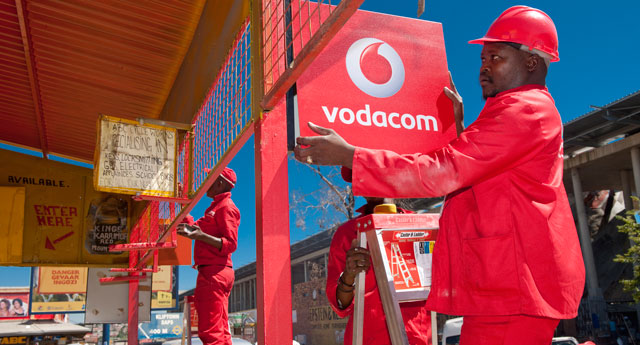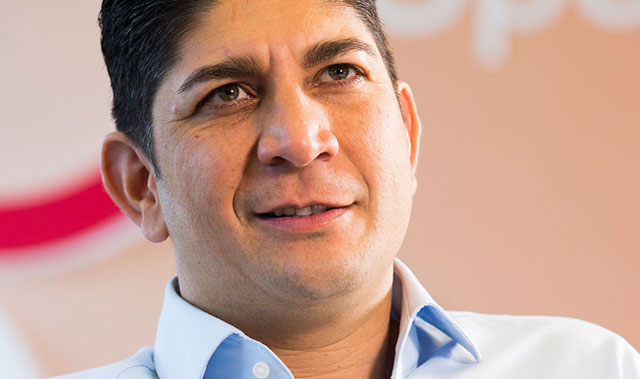
Vodacom continues to defy weak economic conditions in the markets in which it operates, revealing on Thursday that its strong financial performance in the 2016 financial year has continued into the first three months of its new financial year.
In the quarter ended 30 June 2016, Vodacom reported robust service revenue growth of 5,6% from its principal South African operation. Group service revenue rose by 7,3%, with overall group revenue expanding by 5,8% to R19,9bn.
South Africa delivered strong active customer growth, up 5,4% to 35,1m, adding just under a million customers in the quarter. However, group active customers declined by 2,6% to 61,8m due to new customer registration processes in its international markets.
Group data revenue increased by 19,4% to R5,8bn, representing 34,4% of service revenue, while capital expenditure for the three-month period was R2,7bn, equivalent to 13,6% of group revenue.
“Our strong performance last year has continued into the first quarter of our new financial year and is reflective of the successful execution of our well-planned strategy,” said Vodacom Group CEO Shameel Joosub in a note to shareholders.
Joosub attributed the strong subscriber base growth in South Africa — which came from both the prepaid and post-paid segments — to significant investments in infrastructure to sustain the company’s competitive advantage. He said Vodacom’s net promoter scores — which show the propensity of customers to recommend the company’s services to others — are tracking well ahead of rivals’.
Data revenue in South Africa grew by 18% in the first quarter year on year, with an effective reduction of 16% in the price per megabyte as more consumers moved to bundles and off expensive ad hoc data.

South Africa revenue grew by 4% to R15,4bn, although revenue from equipment sales fell by 3,9% driven by lower sales volumes. In the prior year, the tablet and entry-level smartphone segments were boosted by strong sales volumes of the Vodacom-branded 3G tablet and Smart Kicka smartphone, Vodacom explained.
Prepaid average revenue per user (Arpu) in South Africa fell by 3,2% to R60. Active contract customers have increased by 51 000, with churn falling to just 5,3%. Contract Arpu increased by 5,2% to R401 thanks for strong demand for data.
Vodacom South Africa now has 14,9m customers using data bundles and it sold 329m bundles in the first quarter. Data revenue increased by 18% to R4,7bn and now contributes 37,8% to service revenue (33,8% a year ago). Data customers increased by 6,1% to 18,8m.
Average monthly data usage by customers on smart devices grew by 19,6% to 632MB in the quarter. Active smart devices on the network was up by 18% to 14,1m, 3,1m of which used 4G/LTE.
Enterprise service revenue climbed by 11,6% and now contributes 24,4% (22,4% previously) to South Africa’s service revenue line.
International operations, meanwhile, contributed 26,7% to group service revenue. Growth in these operations was hit by Sim card registration programmes, with total active customers decreasing by 11,5% to 26,7m.
“The impact of customer registration processes on new customer activations has negatively affected net customer additions mainly in Mozambique and the Democratic Republic of Congo,” Vodacom said.
“The monthly customer growth trend has started to improve as acquisition procedures become more efficient across all channels. Net customer additions has turned positive towards the latter part of the quarter in most operations.”
Despite the subscriber registration issues, data revenue from international operations grew by 25,7% to R1,1bn, with 40,9% of active customers using data, up from 34,1% a year ago.
Even though the M-Pesa mobile payments system failed in South Africa, it continued to perform well in several of Vodacom’s other market, it said. It now has 10,6m active M-Pesa customers, up by 34,7% on a year ago, with revenue climbing by 47,5%. — © 2016 NewsCentral Media




